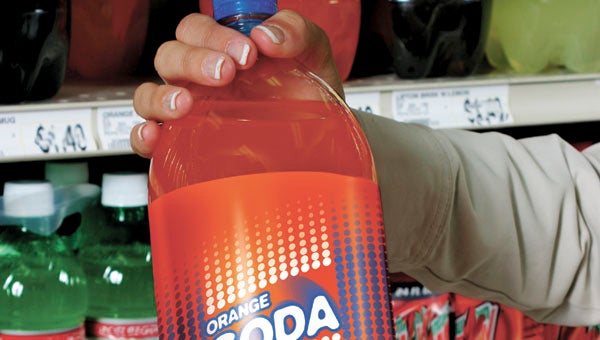Nutritionists: Cut back on sugary drinks
Published 12:00 am Friday, September 9, 2011
Dr. Pepper, Mt. Dew, Coca-Cola, Diet Coke or Pepsi — nearly everyone has their favorite choice when it comes to these sugary beverages, but nutritionists say people should be more health conscious about their consumption.
In fact, more than half of Americans over age 2 drink at least one daily, according to a report issued recently by the National Center for Health Statistics.
“CDC researchers interviewed 17,000 Americans about their diets,” ARH dietician John Newsom said. “The average male in the survey consumed 175 calories in a day from drinks containing added sugar, while the typical male consumed 94 calories from these drinks.”
Teenage boys ages 12 to 19 consume the most at an average of 273 calories per day for sugar-sweetened drinks, which equates to two 12 ounce cans.
Men ages 20 to 39 consume an average of 252 calories a day from beverages containing added sugar.
Newsom said the American Heart Association recommends getting no more than 450 calories a week from sugar sweetened beverages or less than three cans of soda. This includes sodas, fruit drinks, energy drinks, sports and sweetened bottled waters.
However, one must make a concerted effort to buck the trend, not only for personal health, but also for overall health of one’s family, Newsom said.
“You can make a difference,” he said. “Parents and adults need to be role models. Drink less soda, juice drinks and sports drinks. Consider 1 percent skim milk at meals and water in between. Reduce sweetened drinks to three per week. Enjoy regular meals together as a family.”
Newsom said although attention has been brought to sweetened drinks, the bigger picture is the consumption of sugar daily.
In the early 1900s, the per capita consumption of sugar was around seven to 10 pounds per year, and today it is more than 115 pounds per year, he said.
“We need to reduce the intake of sugar, period, as it does contribute to obesity and diabetes, which are epidemics in this country,” he said.
Newsom suggested trying the following strategies to reduce sugar intake.
• Cut back on sweet treats;
• Eat smaller portions of desserts and sweets;
• Drink smarter beverage choices such as water;
• Choose the checkout lane that does not have candy and other sweets, when shopping.
• Reward behaviors with something other than sweets or food.
• Make fresh fruit an everyday dessert;
• Encourage kids to invent new snacks that are low in sugar and salt;
• Play detective on the cereal aisle. Read the labels and go for less sugar and more fiber and whole grains.
• Make treats “treats” not everyday foods. Limit sweet treats to special occasions not everyday foods.
• If kids don’t eat their meal, they don’t need sweet “extras.”





